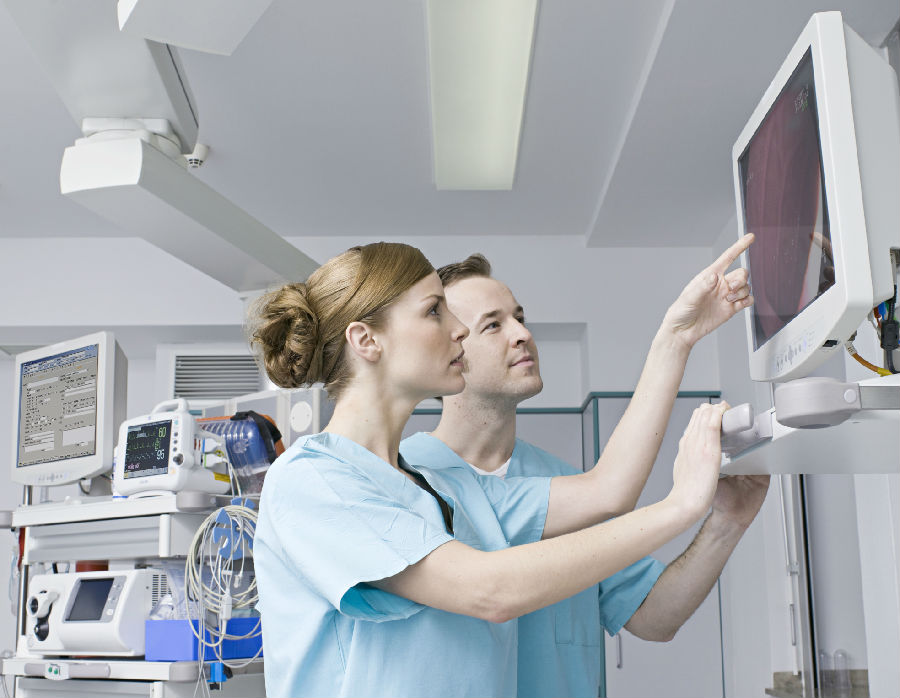After the operation, the surgical patient often needs intensive care.
手术之后,外科病人通常需要加强护理。
Here there are some reasons. Of course, some common problems will occur.
这其中有一些原因。当然,也会有一些常见问题出现。
The problems can be expected and therefore anticipated.
这些问题是可以预见的。
After the operation, patients often need hemodynamic monitoring.
手术之后需要对病人进行血流动力学监护。
Many of the conditions are related to basic medical problems.
病人的很多症状与基本的临床问题相关。
Some patients will have intraoperative hemorrhage or postoperative infection.
一些病人会出现术中出血或术后感染。

It may lead to instability. So the patient needs special care.
这会导致手术后病情恢复不稳定。因此病人需要特别看护。
This will be much more common after emergency surgical procedures.
这种情况在急救手术病人身上更为常见。
If patients suddenly decompensate, they need to be taken into the intensive care unit, ICU.
如果病人突然代谢失调,需要将其送入重症加强护理病房。
Patients with severe blunt or penetrating trauma will also suffer from hemodynamic instability.
钝挫伤及穿透性创伤患者还会出现血流动力学不稳定。
Very often, they will have an immediate inflammatory response which is caused by severe bone and soft tissue injury.
他们很可能会出现急性炎症反应,这是由严重骨质或者软组织受伤所致。
If hypovolemic shock occurs, then it shows that the injury is serious. The patient sometimes needs blood transfusion to correct the deficit.
如果出现低血容量性休克,这表明伤势严重。有时需要对病人进行输血来补充其体内血液。
Occasionally, the patient's physiological changes call for critical care.
病人的生理变化偶尔也会需要特别监护。
If patients have nontrauma emergencies that are related to perforated viscous or necrotic bowel, an even greater total body insult will occur.
如果非创伤性疾病的急救患者的病症与肠穿孔粘滞或肠坏死有关,那么患者整个机体可能会受其影响。
Each insult leads to a systemic inflammatory response.
这些影响会分别导致各个器官的系统性炎症反应。
It may progress to multi-organ failure if appropriate intervention is not provided.
如果不采取有效治疗,患者可能出现多器官功能衰竭 。
Collectively, these surgical patients cover the majority of the patients who have to be sent to the ICU.
总而言之,重症加护病房的患者大部分是外科手术患者。
译文属可可原创,仅供学习和交流使用,未经允许不得转载



